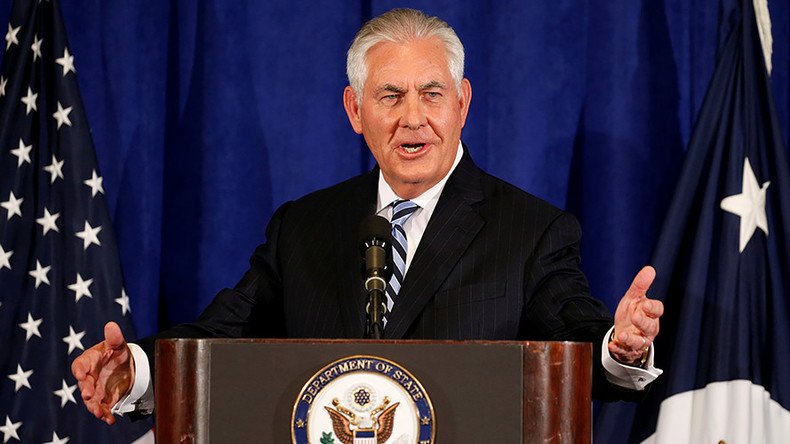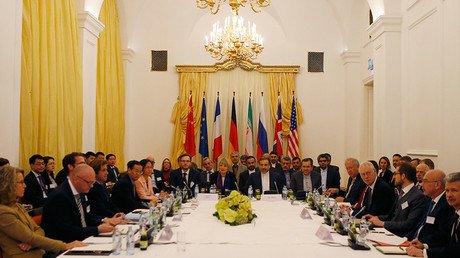'Clear & concise' Trump won't tell allies his decision on Iran deal – Tillerson

Secretary of State Rex Tillerson insists that Iran is only in “technical compliance” with its nuclear deal, following President Donald Trump’s cryptic announcement that he has reached a decision on whether to re-certify the agreement.
Tillerson said that Trump has been “quite clear and articulate” about his concerns with the Joint Comprehensive Plan of Action (JCPOA), also known as the Iran nuclear deal, during a press conference Wednesday. Tillerson detailed some of the meeting he had just completed with his international counterparts involved in the Obama-era agreement.
Secretary of State Rex Tillerson comments on #Iran and the #JCPOA. #UNGA#USAatUNGApic.twitter.com/VpgABRfMNw
— Department of State (@StateDept) September 21, 2017
Tillerson said that he spoke personally with Iranian Foreign Minister Mohammad Javad Zarif Khonsari and other leaders in an “open and candid exchange,” and said it was “useful to hear their perspectives."
While Tillerson said that Iran is in "technical compliance" with the deal, he also said the US still finds “significant issues with the agreement."
The meeting followed an announcement from Trump that he had made a decision on whether the US would re-certify Iran’s compliance with the nuclear agreement. However, Trump did not give any indication which decision he had reached, and Tillerson said he has not shared his decision “externally.”
However, Tillerson said that Trump is “very, very seriously considering” the decision of whether the US finds the agreement is in the best interests of the American people.
Last week, Trump hinted that the US might not re-certify Iran’s compliance with the agreement before the deadline on October 15, saying that Tehran had “violated the spirit” of the deal.
Tillerson said that while Trump is focused on the “spirit” of the agreement, he is focusing on its “expectations,” which he said were described in the preamble of the deal. According to Tillerson, the conclusion of the deal “would set aside a serious threat to the region and to the relationship, and by doing so, this would allow the parties to seek a more stable and peaceful region.”
“That was the expectation of the parties, and regrettably since the agreement was confirmed, we have seen anything but a more peaceful stable region,” Tillerson said.
The preamble of the JCPOA does not include any mention of creating “a more stable and peaceful region,” only ways to ensure Iran’s “peaceful uses of nuclear energy.”
In his speech at the UN General Assembly, Trump called Iran a “depleted rogue state whose chief exports are violence, bloodshed, and chaos,” saying that it funds “terrorists that kill innocent Muslims and attack their peaceful Arab and Israeli neighbors.”
"It is far past time for the nations of the world to confront another reckless regime," #Trump on #Iranhttps://t.co/UiXXYnXtjPpic.twitter.com/lPalg5Nwnd
— RT America (@RT_America) September 19, 2017
Tillerson offered more specific examples where Iran has engaged in “destabilizing activities” that have occurred since the agreement was made, including Iran supporting President Bashar Assad, claiming he was engaging in malicious cyber activity, and testing ballistic missiles in defiance of UN “thereby threatening the security of the United states and the stability of the region.”
“So, I think it's pretty difficult to say that the expectations of the parties that negotiated this agreement have been met,” Tillerson said.
“Perhaps the technical aspects have, but in the broader context, the aspiration has not.”
Tillerson said that the US has sanctioned Iran for these activities, which are “not covered under the JCPOA itself.”
Tillerson also said that Trump has problems with the agreement’s “sunset clause,” which would allow Iran to resume its nuclear weapons activities after a certain period of time.
In his speech, Trump said the US “cannot abide by an agreement if it provides cover for the eventual construction of a nuclear program.”













